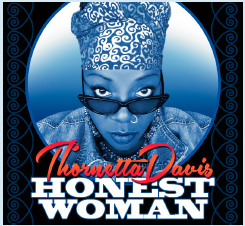Southern Soul
Jeter Jones Drop New Single, Sings He Just Want To “Get My Groove On”
Southern Soul musical artist, Jeter Jones was born Gary Charles Jones in Mansfield, Louisiana. He’s back with new music, a single entitled “Get My Groove On.”
Published
1 year agoon
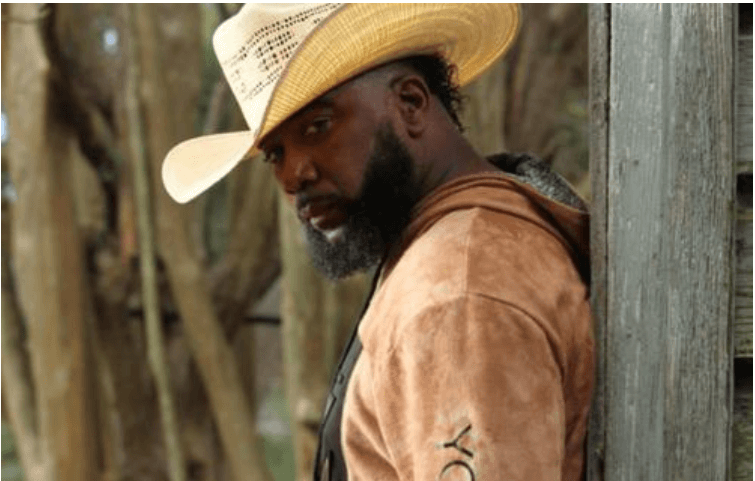
Jeter Jones is an American blues, soul, R&B singer and songwriter from Louisiana who is known as “King of the Trailride Blues.” Since his 2013 debut long-player R.E.A.L. (Raw Encouraging, Amazing Love) showcased his sweet yet gritty baritone voice to regional acclaim, Jones has been singular in his pursuit of Southern soul. Music, though it was not his first career choice. For 20 years, Jones a military man, where he served as a combat medic in the U.S. Marines. He saw duty in the Afghanistan invasion after 9/11, and in the liberation of Iraq in 2003. He retired as Sergeant First Class.
Jeter Jones is an American blues, soul, R&B singer and songwriter from Louisiana who is known as “King of the Trailride Blues.” Since his 2013 debut long-player R.E.A.L. (Raw Encouraging, Amazing Love) showcased his sweet yet gritty baritone voice to regional acclaim, Jones has been singular in his pursuit of Southern soul. Music, though it was not his first career choice. For 20 years, Jones a military man, where he served as a combat medic in the U.S. Marines. He saw duty in the Afghanistan invasion after 9/11, and in the liberation of Iraq in 2003. He retired as Sergeant First Class.
ADVERTISEMENT

Jones sang throughout his youth, it wasn’t until 2012, while still in the service, that he began to pursue it, he released his sophomore studio release, ‘Da GQ Country Boy,’ in 2015, an album stylized towards traditional blues and Southern soul, that album was followed by his ‘Trailride Certified’ Lp, in 2016, that collection signaled Jones’ move toward a slick funk type sound and also proved to be his breakthrough. Its acceptance by roots music DJs and critics netted him festival appearances and expanded his fan base while touring regional venues. 2018’s ‘Dhis Him’ showcased his return to rootsy Southern soul and featured a slew of guest spots.
In 2020, Jones further proved his musical diversity. He issued the gritty Southern soul-blues and funk album ‘Mufasa‘, and it scored with the single “Mind Playing Tricks on Me” (dedicated to the memory of the late Geto Boys member, Bushwick Bill). A few months later, leading the funk band the Jones Boyz, he released,’ which featured the charting single and video “Zydeco with Me” and the Rick James-esque dancefloor groover “Like Voodoo” featuring rapper, King South.
You may like
-
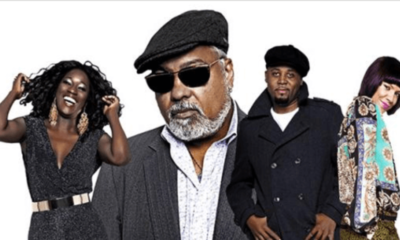

Incognito (Featuring Bluey)Drops New Music That Asks A Question, “Could Heaven Ever Be Like This”
-
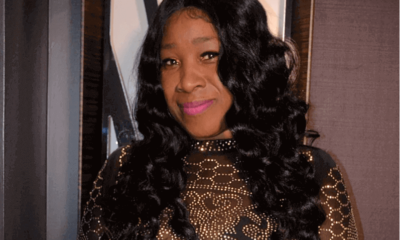

Meet | Karen Wolfe Helps Get Your Hustle On With Her “Grown Folks Two-Step”
-
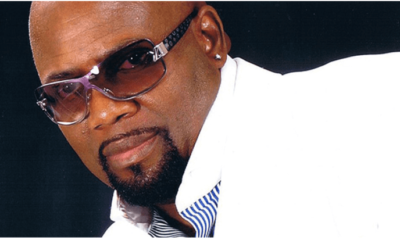

Willie Clayton Laments And Declares… “I Can’t Keep Loving You”
-


Media Mogul Byron Allen announces plan to bid for NFL’s Denver Broncos
-


Acantha Lang “Sugar Woman”
-


J’Cenae Makes it abundantly clear… “I Ain’t No Side Piece Lover”
SOUL CLASSICS
CaughtInTheAct | Captured Live At The Longhorn Ballroom in Dallas, Texas… Johnny Taylor Rocked “Last Two Dollars” Live.
Published
1 year agoon
May 13, 2022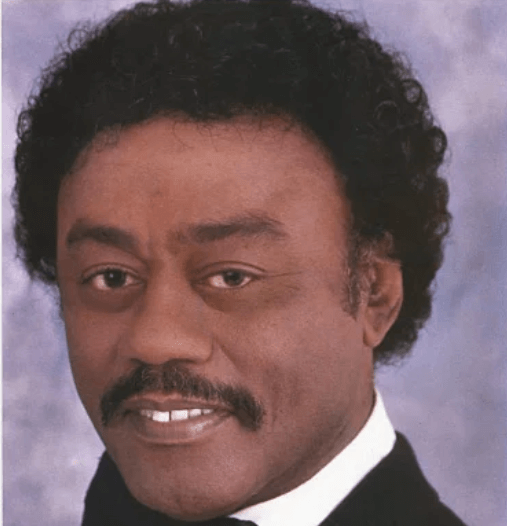
It’s almost impossible to overstate Johnnie Taylor’s importance to southern soul music and for that matter popular music. His career, which extended back to the very birth of soul music and to gospel before that, exemplified both the music’s staying power and its stylistic flexibility. He spanned multiple genres and generations while never relinquishing the masterful vocal technique—passionate, deeply soulful, yet meticulously crafted—that was his calling card from the beginning.Taylor was born in Crawfordsville, Arkansas, less than 15 miles west of Memphis. According to his official Social Security records, the year was 1934, although he usually claimed 1938 and his gravestone inscription reads “May 1937 – May 2000.” While growing up in the West Memphis area, he sang in church; later, after moving to Kansas City, he became a member of a gospel aggregation known as the Melody Kings. In the early ’50s, he moved to Chicago, where he sang doo-wop with the Five Echoes (their records on the Sabre and Vee-Jay labels are prized collectors’ items) before joining forces with a youthful gospel group called the Highway QCs, whose original lead singer, a dashing young man named “Sam Cook,” had left to join the nationally renowned Soul Stirrers. He remained with the QCs until 1957, when the Soul Stirrers themselves recruited him to replace Cooke, who added the final “e” to his name while making his crossover into secular music. The connection with Cooke remained strong—the Stirrers, with Johnnie at the helm, were the first act to record for SAR, the label Cooke co-founded with J.W. Alexander in 1959. He also retained many of the vocal mannerisms he had adapted from Cooke, including a fluttering melisma patterned after the “yodel” (“Whoa-whoa-a-whoa”) that was one of Cooke’s most indelible trademarks.
Johnnie Taylor was—to put it mildly—a free spirit, even by the somewhat disingenuously permissive standards of the gospel world. In 1960, after a police investigation following an auto accident found him to have been driving under the influence of marijuana, he unrepentantly left the Stirrers to become a Baptist preacher (“The Reverend Johnnie Taylor [Formerly with the Soul Stirrers]”). By the following year, though, he was recording for SAR as a secular artist. His first chart hit was in 1963 on the SAR affiliate label Derby, but he didn’t really hit his stride until1966, when he joined Stax and quickly hit No. 19 with his debut for the label, an Isaac Hayes / Dave Porter blues number called I Had a Dream. He remained with the Memphis soul powerhouse until 1975, recording such classic numbers as Who’s Making Love, Steal Away, Jody’s Got Your Girl and Gone, I Believe In You (You Believe In Me) and the jazz-tinged Cheaper to Keep Her, among others; all told, he charted on Stax 24 times. In 1976, having moved to CBS, he leapt aboard the disco bandwagon and came up with the biggest-selling hit of his career, Disco Lady.
Taylor’s last Top 10 single was Love Is Better In the A.M. (Part 1) on Columbia in 1977. By 1984 he had joined Malaco Records, where he recorded 13 albums over the next 18 years (one, 1998’s Cheaper to Keep Her, was issued on the 601 Music subsidiary). His first release for the label was This Is Your Night in 1984 with five George Jackson–penned tunes including Still Called the Blues and She’s Cheatin’ on Me. He quickly followed with Wall to Wall (1985), Loverboy (1987), In Control (1988) and Crazy ’Bout You (1989) to round out the decade.
On Malaco, he quickly rose again as one of the top stars in the new southern soul (or “soul blues”) field. Good Love, which peaked at No. 39 in 1996, was his most commercially successful latter-day recording (all told, he charted five times during his Malaco tenure). His LPs fared somewhat better: Good Love!, his eighth for Malaco, hit No. 1 on the Billboard blues album chart and No. 15 on the R&B album chart in 1996.
Many of the songs Johnnie Taylor recorded for Malaco became instant classics, and they’ve remained so. Gems like, Crazy Over You (from 1991’s I Know It’s Wrong . . . But I Can’t Do Right); Back Street Love Affair (from 1994’s Real Love); Wall to Wall (the title song of Taylor’s 1995 Malaco release); Last Two Dollars (from Good Love! in 1996) and both Big Head Hundreds and the prophetic Soul Heaven from 1999’s Gotta Get the Groove Back (Soul Heaven was released as a single posthumously) are only a few examples. These and many others remain ubiquitous on southern soul radio, on jukeboxes, on club turntables and in the repertoires of bands and singers both well-known and obscure—in fact, they’re probably better known, at least in the southern soul world, than some other artists’ million-sellers from those same years.
Other albums from the 1990s include The Best of Johnnie Taylor on Malaco, Vol. 1 (1992), Brand New (1996) and Taylored to Please (1998) as well as the posthumous There’s No Good in Goodbye in 2002.
Johnnie Taylor died on May 31, 2000, after suffering a heart attack in his home in Dallas. Like Marvin Sease, Taylor had recorded what would eventually become his own musical obituary (Gone On in Sease’s case, Soul Heaven in Taylor’s), bringing an added poignancy to his story. But it’s the full body of his work, spanning nearly four decades and ranging from gospel testimonials through blues, deep soul, disco and modern southern soul party anthems, love songs and ballads—some of the most monumental in the genre—that represents his true legacy and monument.
—David Whiteis
SOUL
Blues Queen Thornetta Davis Laments In Latest Video… “Am I Just A Shadow”
“Am I Just A Shadow” Video by Thornetta Davis. Featuring Antoine Jackson, Kelly Randall, Mae Bowman, Roseann & Rosemere Matthews
Published
1 year agoon
February 27, 2022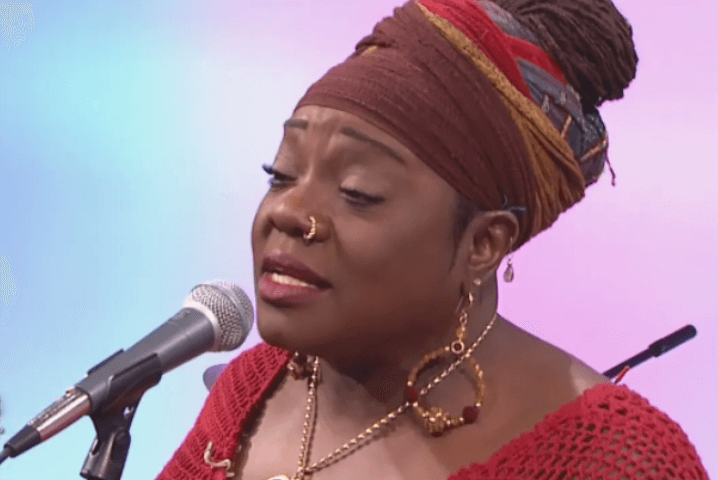
After entering a local talent contest at the age of 15, Detroit born Thornetta Davis went on to join a local group Jas which disbanded in 1983 and then she, and another former member of Jas, and two of her high school friends formed Chanteuse, a vocal group covering old R&B hits. She was recruited as a backing vocalist by Lamonte Zodiac & the Love Signs, a local soul group based outfit, who later became the Chisel Brothers. By 1991, Davis had moved on to back up singing for Big Chief, who recorded a couple of albums for the Sub Pop label. In 1992, Davis had appeared at the Ann Arbor Blues & Jazz Festival, and sang on stage with Bonnie Raitt and Kate Webster.
Following the group Big Chief disbanding, Davis was signed to a solo recording contract with the bands same label, making Davis the first Black artist signed to Sub Pop, a label initially known for its Grunge releases.
Davis’ initial release for the label was an EP, ‘Shout Out To The Dustbuffer,’ (1995), and the following year she released her first solo album, ‘Sunday Morning Music’,’ a song from her “Sunday Morning Music” album, “Cry”, was used in the “Isabella’ episode of the HBO television drama, ‘The Sopranos.’
Between 1997 and 2003, Davis was a backing vocalist for Kid Rock, appearing on his albums, ‘Devil Without A Cause’ (1998) and Kid Rock (2003), and she also sang on Kid Rock’s single, ‘Wasting Time.’ In 2000, Davis performed backing vocals with Kid Rock when he opened the VH1 Vogue Fashion Awards at Madison Square Garden. Davis performed on the soundtrack for the 2001 film, Osmosis Jones. In addition, her voice was used on the television program, Xena, Warrior Princess. Davis has also guested on Alberta Adams’ ‘ 2008 album, Detroit is My Home.
Click Album Cover To Buy Honest Woman CD by Thornetta Davis
Along the way, Davis was voted Outstanding Blues Artist in 2004 and 2006, and Outstanding Blues/R&B Vocalist in 2004, 2006, 2010, 2011 and 2014. In 2018, she won the following Detroit Music Awards: Outstanding Blues Artist/Group; Outstanding Blues Songwriter; Outstanding Blues Vocalist; Outstanding Video/Limited Budget for “I Believe (Everything Gonna Be Alright)”; Outstanding Urban Songwriter; and Outstanding Urban Vocalist.
In 2014, Davis performed at the Concert of Colors in Detroit with the Detroit Symphony Orchestra. In 2017, she was nominated for a Blues Music Award in the Best Emerging Artist Album category, for her album, Honest Woman.
Miss Davis has received numerous awards and critical acclaim, both nationally and internationally all along her journey and still feels her journey has just begun.
Meet Thornetta Davis, a true Queen gifted with both, a powerful presense and voice in this video for “Am I Just A Shadow,” a gem almost lost to all but her devoted fans and followers because it was released in the midst of the pandemic. We have included another gem from the Queen below entitled “I Believe (Everything Gonna Be Alright). Let us know how you feel about Miss Davis and her video releases by commenting in the comment box below.
Southern Soul
Meet | Karen Wolfe Helps Get Your Hustle On With Her “Grown Folks Two-Step”
Karen is no newcomer to the world of Soul Blues. However, “Karen Wolfe” recorded her first album with a Gospel Quartet group called “The Harmonettes” the CD was titled “Stop By Here”. The group later changed their name to “Direction” and went on to record their sophomore CD that was titled “God Don’t Make Mistakes”.
Published
1 year agoon
February 26, 2022
The Karen Wolfe Biograghy
Karen Wolfe – The Queen of Soul Blues records with Sweet Success Records bringing a new sound, new attitude, with the same powerful show and now a new impact. Right out the blocks Karen’s hot single ” Grown Folk Step” is evidence of how determined she is on changing the Southern Soul / Blues genre and crossing it over to Mainstream R&B / Soul, to allow the genre to breath and expand.
Who is Karen Wolfe:
“Karen is no newcomer to the world of Soul Blues. However, “Karen Wolfe” recorded her first album with a Gospel Quartet group called “The Harmonettes” the CD was titled “Stop By Here”. The group later changed their name to “Direction” and went on to record their sophomore CD that was titled “God Don’t Make Mistakes”. After the group dissolved, “Karen’s” musical career took a change in direction. “Karen” joined the Soul & Blues arena by singing background behind the Queen of the Blues, the Legendary Denise LaSalle.
Back in the Day:
Back-to-back hits allowed Karen to perform and tour for four plus years all around the country but eventually like all great singers she had this burning desire to do something new. During those four years of traveling the global several looked alike appeared but when the dust settled only one Princess of Soul and Blues emerged. Karen knew she had to bring the fire to let them know that chick ain’t me and with a new year, new manager comes new music, new attitude, and now she had two new hot songs in soul that she just couldn’t wait to release but just couldn’t finding the right time to release them.
Even with all of the hits her fans were crying for that answer to “Man Enough so in 2017 Karen released the “That Chick Ain’t Me” which was followed in 2018 by “You Ain’t Woman Enough” and the fans were happy. Karen saw the times were changing and she wanted to diversify her music, so she moved over to Sweet Success Records (SSR) in and in 2019 and released a bomb shell entitled “Girls Night Out,”. It was the perfect tune for the women wanting to hang out and have a great time. She has now touched a new demographics and getting ready to work on her second amazing project. Karen Wolfe-Bass is here to stay.
Southern Soul
Willie Clayton Laments And Declares… “I Can’t Keep Loving You”
Published
1 year agoon
February 26, 2022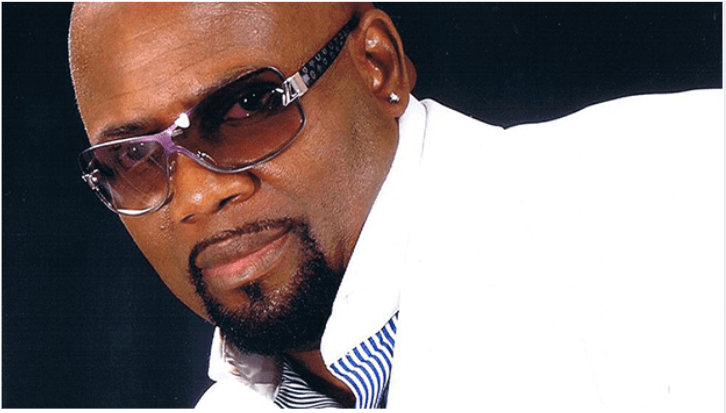
Willie Clayton Biography
Willie Clayton is a singer-songwriter and producer. Like many other black singer/songwriters, he began performing gospel music in church settings as a youngster and then moved into the secular field as a lyricist, producer, and singer. An active recording artist since the 1970s, Clayton’s career has endured almost 40 years and has spanned a repertoire in the styles of R&B, soul, and gospel. Birthed into an era of soul and R&B legends, a time when music was pure, lyrics had meaning, and artists had pronounceable names, Willie Clayton is now one of the few working artists of his contemporaries. Since the 1970’s he’s been crooning with the likes of Ron Isley, Bobby Womack, Sam Cooke and Marvin Gaye, yet now he stands nearly alone, facing a new generation.
Born in the Deep South (Indianola, Mississippi) during the days of segregation, Clayton, unable to find proper management or the success he sought moved to Chicago in 1971. Like many other African American artists in the 1970’s, the young singer ended up contracted to Hi Records in Memphis, where he worked with producer Willie Mitchell and the vaunted Hi rhythm section. Hi issued a series of fine Clayton efforts on its Pawn subsidiary, including “I Must Be Losin’ You,” “It’s Time You Made Up Your Mind,” and “Baby You’re Ready,” but none of them hit. Finally, in 1984, Clayton enjoyed a taste of soul success when his “Tell Me” (produced by General Crook) and “What a Way to Put It”, scored on to the R&B charts. Let’s Get Together, Clayton’s 1993 album for Johnny Vincent’s Ace record label, was a smooth soul-blues hybrid dominated by originals but titled after Al Green’s immortal hit.
Simply back on the scene after the mainstream success of Clayton’s “Boom Boom Boom and “A Woman Knows”, which landed on Billboard album and airplay charts. Clayton is prepared to teach a new generation the right way to love. Self classified as an all-encompassing singer, he refuses to be pigeonholed in one genre of music. “There aren’t many real gritty R&B singers. Bobby Womack, Charlie Wilson and I are the last of that generation.
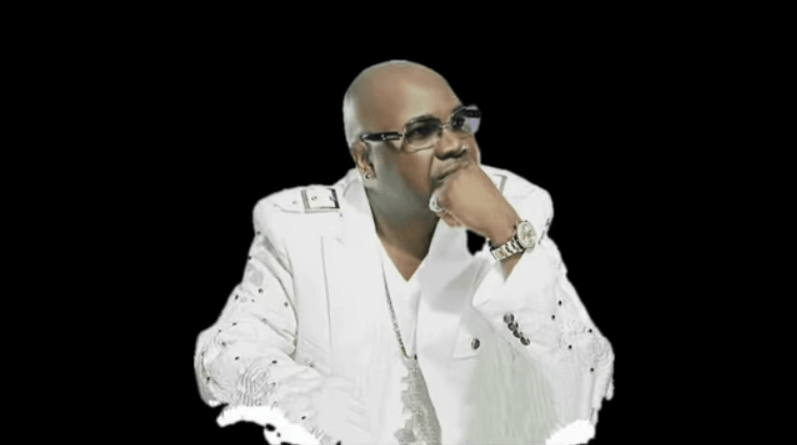
I keep up with the music because I keep changing with the times. Where Levert left off, I am picking it up, and like him my music is relatable across the generations.”
In 2009 Clayton made what is known as one of the all time fan favorites with the project entitled Love, Romance and Respect which featured two back to back Top 25 Urban Adult Contemporary Airplay Billboard Singles Charts with “Dance The Nite Away” and “We Both Grown” featuring Dave Hollister.Love, Romance and Respect is truly a classic R&B album the world over. Working with young musicians and producers, (none over the age
of 30) has allowed Clayton to speak the language of love to modern rhythm and blues. Grateful for the young energy, the expertise and perspective, he feels this album is full of timeless music. “It’s not a one single album, it’s grown and sexy. It’s about bringing romance, love, respect and sensuality back in the house.”
In 2011 the multi-talented singer, songwriter, producer released two separate projects in one physical year. “That’s work”, said Clayton. The projects included The Voice which featured the hit single “Tonight” and The Tribute: One Man, One Voice, which featured the hit single “Be With Me”.
Both singles were Top 25 records on the Urban Adult Contemporary airplay chart. Clayton continues to not just release music but quality projects that satisfy his fans and keep him entertaining fans all over the world. With multiple releases throughout his career, even in 2012 Clayton is confident in his newest offering to the world, even reaching generation next, by building an Internet presence and bridging the generational gap. “Mood music has no age limits, this album reminds you how good it is to be in love, or shows you how sweet it can be!”
Considered by critics and fans alike to be one of the last great “Soul” men, Clayton continues to record and perform and has maintained a devoted following throughout the world.
For those who have yet to partake of the Willie Clayton experience, please do so hurriedly, because this awesome wonder is just getting started…
MISS THIS?
LOOK BACK | When Curtis Harding Dropped “I Need Your Love”
Harding recorded his 2014 debut, Soul Power, with little in the way of expectations, but the album managed to generate real heat, particularly in Europe, where Uncut praised it as “a confident take on sleek, horn-powered…soul with a hint of garage muscle” and Mojo dubbed it “something altogether special.”
Published
1 year agoon
January 6, 2022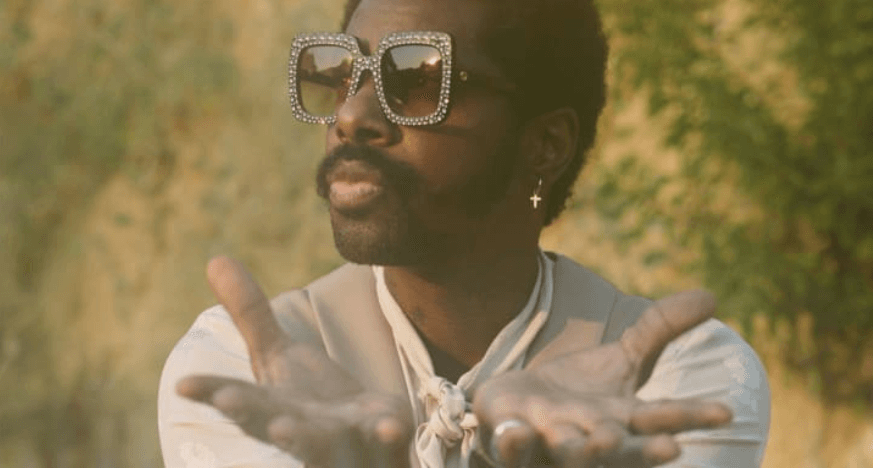
Curtis Harding dropped this video for “I Need Your Love” on Oct 26, 2017, since that time the visual has garnered 1,377,793 views. Harding was well-received across the Pond in the UK, but only got sporadic airplay here in the states which makes it likely you did not experience the feel-good early 60’s feel of “I Need Your Love”, But you can hear and experience it now with this Look Back.
Curtis Harding Bio
Growing up, Curtis Harding’s mother used to tell him, “Give me my flowers while I’m still here.” It was a phrase that stuck with the talented singer and multi-instrumentalist through the years, a reminder to show his love and appreciation for the people he cared about before it was too late.
“That’s what this album is,” Harding reflects. “It’s me giving my flowers to the world, to anybody who needs to hear what these songs have to say right now.”
Written and recorded over the past two tumultuous years, If Words Were Flowers is indeed a vibrant, intoxicating bouquet, one as diverse as it is dazzling. Drawing on vintage soul, R&B, hip-hop, garage rock, and psychedelia, the songs here are raw and gritty, fueled by airtight grooves, punchy horns, and adventurous production from Harding and frequent collaborator Sam Cohen (Kevin Morby, Benjamin Booker). There’s a clear through line on the album from Harding’s 2017 breakout, Face Your Fear, but there’s obvious evolution as well, a boldness that revels in risk-taking and sonic exploration. The result is a pointed, timely album that feels experimental and classic all at once, a moving, generous collection all about love, resilience, and reconciliation from an artist who values the beauty and the power of human connection above all else.
“I want this music to help people understand that they’re not alone,” Harding explains. “We’re all going through the same thing right now on some level, and I hope these songs can bring a little bit of comfort and peace.”
Harding’s been searching for comfort and peace in music as far back as he can remember. Born in Saginaw, Michigan to a mechanical engineer and a gospel singer, Harding spent much of his formative years on the move, bouncing between north and south until his family ultimately landed in Atlanta. He learned to sing and play drums in church with his mother, who introduced him to the likes of Mahalia Jackson and Mavis Staples, but it was his sister’s collection of hip-hop tapes that would push him towards a career in music and inspire him to begin writing and rapping. With the Atlanta scene exploding onto the national stage at the time, Harding picked up work promoting artists on the legendary LaFace label and he soon found himself in the studio and on the road as a backup vocalist with some of the city’s biggest stars.
“That was when I realized I didn’t have to choose between being a rapper and being a singer,” says Harding. “I started teaching myself guitar and working with more live instrumentation and figuring out how to incorporate everything I grew up on into what I was doing.”
Harding recorded his 2014 debut, Soul Power, with little in the way of expectations, but the album managed to generate real heat, particularly in Europe, where Uncut praised it as “a confident take on sleek, horn-powered…soul with a hint of garage muscle” and Mojo dubbed it “something altogether special.” Three years later, Harding broke out Stateside with Face Your Fear, which stretched his sound to exhilarating new heights. Helmed by Cohen and super producer Danger Mouse, the record earned Harding dates with everyone from Jack White to Lenny Kravitz, landed him festival slots at Newport Folk, Lollapalooza, and Austin City Limits, and racked up nearly 60 million streams on Spotify alone. NPR declared the record one of the year’s best R&B releases, calling Harding a “gifted, gospel-bred shouter and deep digger in the Curtis Mayfield/Stevie Wonder crates,” while Complex hailed the music as “vintage, classic soul music” with “psychedelic splashes and a touch of garage rock fuzz,” and New York Magazine raved that “with a scorching voice like his, the funk is eternal.”
After touring extensively behind Face Your Fear, Harding began writing again in 2019, splitting his time between Atlanta and Los Angeles as he collected song ideas and rough demo recordings for his third record. Just when he thought he was finished, though, the COVID-19 pandemic arrived to change everything.
“That was a really intense time for everybody,” says Harding. “People were trapped inside for months on end, they were losing family members and dealing with all this fear and anxiety, and on top of that you had these growing social and political movements exploding out into the streets. For me, that was really when the album started to take shape conceptually.”
With the world on fire and the music industry on hold, Harding headed back to the drawing board. Some songs took on new meaning in light of current events, while others invited Harding to revisit and refine them. He wrote several more tracks for the collection and though none were particularly explicit in their references to 2020 and its all-encompassing turmoil, it’s impossible not to hear the influence bubbling beneath the surface.
“Nina Simone said that it’s an artist’s job to reflect the times,” Harding explains. “I think it’s important to live in the moment. If you do that and you’re honest and vulnerable, you can reach the people that need to be reached.”
That honesty and vulnerability is front and center on If Words Were Flowers, which opens with the arresting title track. “If words were flowers / I’d give them all to you,” Harding sings with a boost from a larger than life backing choir. “They carry power / So proud and beautiful.” Like much of the record, it’s a song rooted in love, though not necessarily romance. Certainly, Harding spends time contemplating intimate relationships on the album (the addictive “Can’t Hide It” celebrates certainty and commitment, while the tender “With You” examines the ways in which companionship can turn your whole world around, and the trippy “Explore” dives headfirst into a sea of new experiences with a partner), but more often he sings about the broader ties that bind us as brothers and sisters. The earnest “I Won’t Let You Down” pledges unconditional support; the hip-hop flavored “Hopeful” rallies us to stand strong and keep moving forward together; and tracks like the urgent “Where Is The Love” and hushed “It’s A Wonder” search for common ground and meaning in a world that can seem devoid of empathy at times.
“There are days when it feels like people just don’t care,” says Harding. “You wonder how they can see everything going on around them and not feel something, but all you can do is meet them face to face and try to connect. All you can do is give them your flowers.”
Curtis Harding has faced his fear; now he’s ready to share his love.


New, on the Market

A Short Conversation About ‘Snitching’ Led To The Murder Of Nipsey Hussle -Prosecutor

Incognito (Featuring Bluey)Drops New Music That Asks A Question, “Could Heaven Ever Be Like This”

Jeter Jones Drop New Single, Sings He Just Want To “Get My Groove On”

Los Angeles District Attorney Will Not File Felony Charges Against The Man Who Attacked Dave Chappelle At Comedy Show

Snoop’s Death Row Records Mulling A Collab With Bad Boy Records Founder, P. Diddy?

Incognito (Featuring Bluey)Drops New Music That Asks A Question, “Could Heaven Ever Be Like This”

CaughtInTheAct | It was 1977, The Floaters Released Their Enduring Turntable Hit, ‘Float On” A Visual.

SoulClassics | 35 Years Ago, David Ruffin & Eddie Kendricks Dropped “One More For The Lonely Hearts Club” DidYa Miss It?
ADVERTISEMENT


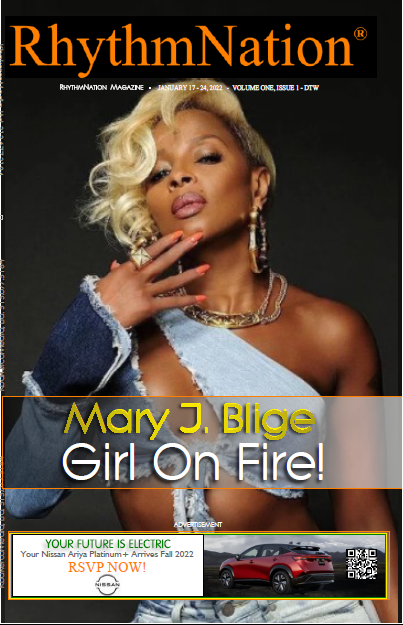
Coming Soon!
Trending
-

 NEWS1 year ago
NEWS1 year agoLos Angeles District Attorney Will Not File Felony Charges Against The Man Who Attacked Dave Chappelle At Comedy Show
-

 NEWS1 year ago
NEWS1 year agoSnoop’s Death Row Records Mulling A Collab With Bad Boy Records Founder, P. Diddy?
-
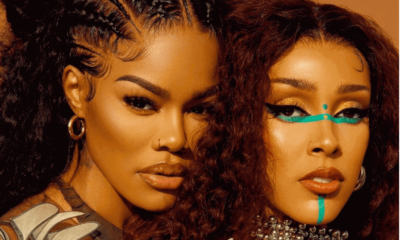
 RNTV2 years ago
RNTV2 years agoQueen Teyana Taylor conjures the Allure and Enchantment of Doja Cat to protect her throne in new video “Woman” by Doja Cat
-

 NEWS1 year ago
NEWS1 year agoA Short Conversation About ‘Snitching’ Led To The Murder Of Nipsey Hussle -Prosecutor
-

 & All That Jazz1 year ago
& All That Jazz1 year agoNEXT UP! | Why 32 Year Old Violinist Daniel D is not just Playing with Fire… He is the Fire.
-
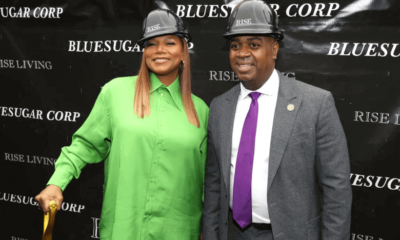
 NEWS1 year ago
NEWS1 year agoHip-Hop’s Queen Latifah Breaks Ground On Community-Driven Real Estate Project In Newark
-
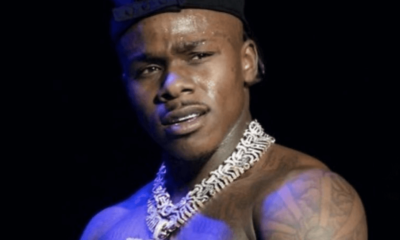
 NEWS1 year ago
NEWS1 year agoOne Person shot outside DaBaby’s North Carolina home, police say
-

 SOUL1 year ago
SOUL1 year agoFrom His ‘Strawberry Jamz’ Album, Singer T.K. Soul Really Wants To “Bring The Freak Out”


